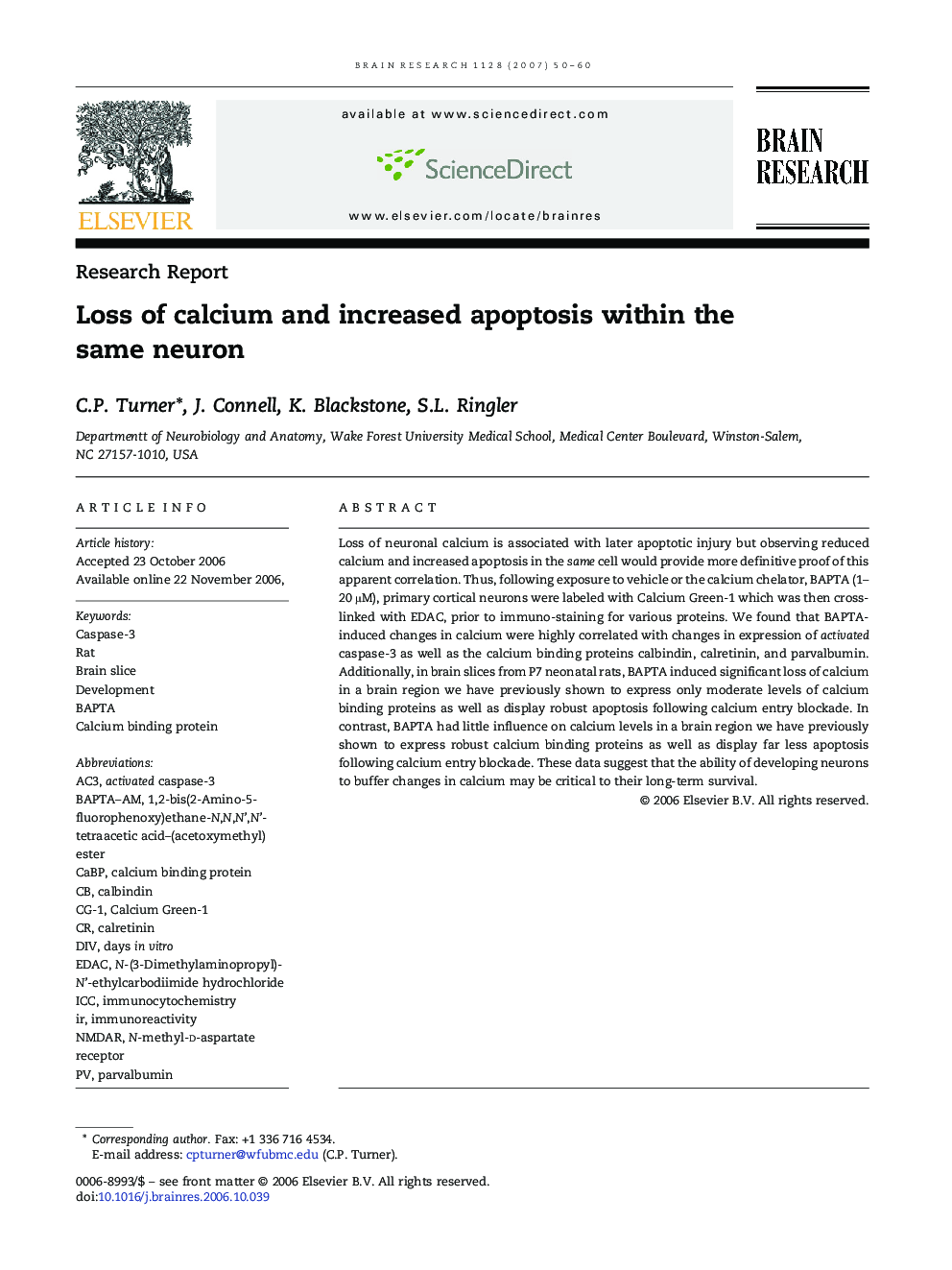| Article ID | Journal | Published Year | Pages | File Type |
|---|---|---|---|---|
| 4331703 | Brain Research | 2007 | 11 Pages |
Abstract
Loss of neuronal calcium is associated with later apoptotic injury but observing reduced calcium and increased apoptosis in the same cell would provide more definitive proof of this apparent correlation. Thus, following exposure to vehicle or the calcium chelator, BAPTA (1-20 μM), primary cortical neurons were labeled with Calcium Green-1 which was then cross-linked with EDAC, prior to immuno-staining for various proteins. We found that BAPTA-induced changes in calcium were highly correlated with changes in expression of activated caspase-3 as well as the calcium binding proteins calbindin, calretinin, and parvalbumin. Additionally, in brain slices from P7 neonatal rats, BAPTA induced significant loss of calcium in a brain region we have previously shown to express only moderate levels of calcium binding proteins as well as display robust apoptosis following calcium entry blockade. In contrast, BAPTA had little influence on calcium levels in a brain region we have previously shown to express robust calcium binding proteins as well as display far less apoptosis following calcium entry blockade. These data suggest that the ability of developing neurons to buffer changes in calcium may be critical to their long-term survival.
Keywords
Related Topics
Life Sciences
Neuroscience
Neuroscience (General)
Authors
C.P. Turner, J. Connell, K. Blackstone, S.L. Ringler,
